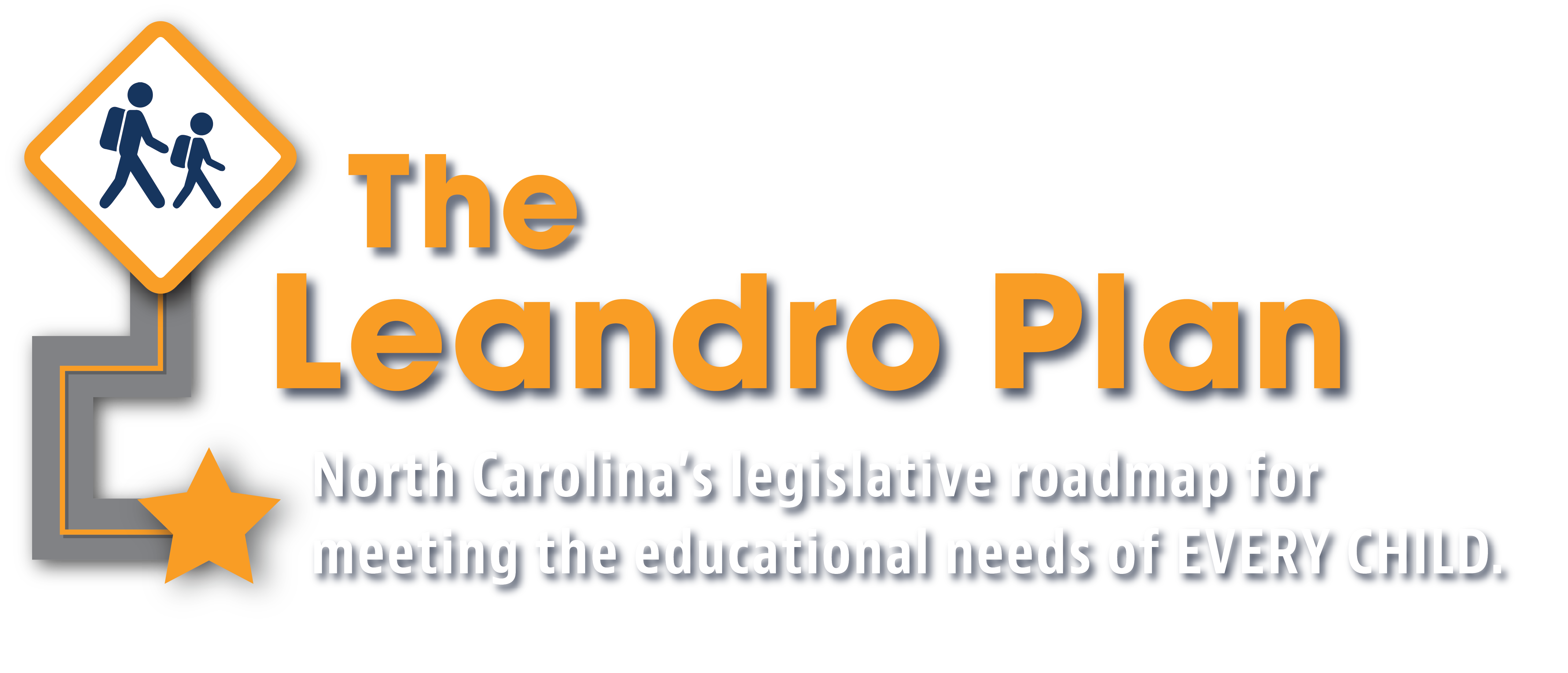How does the Leandro Plan benefit students with disabilities?

Students with disabilities lag substantially behind their peers without disabilities when it comes to education outcomes.
-
- In 2019, less than 20 percent of students with disabilities were grade level proficient in reading, compared to over 63 percent of all students without an identified disability.
- Only 21 percent of students with disabilities were grade level proficient in math, compared to over 64 percent of all students without an identified disability.
The WestEd Report, issued as part of the court’s remedy in the Leandro case, as well as other data, show that students with disabilities need additional supports to achieve the same educational outcomes as students without disabilities.
Students who are eligible for special education are entitled to specially designed instruction that meets their unique needs. Such instruction means adapting the content, methodology, or delivery of instruction to meet the student’s needs and allow them to access the general curriculum. This includes accommodations and modifications, such as smaller classes or multisensory instruction, which require additional resources to provide.
The Leandro Comprehensive Remedial Plan:
a schedule of polices to be adopted by the North Carolina legislature that eliminate the inequities and funding deficiencies that block children from receiving the sound, basic education guaranteed by the state constitution.
Leandro Plan policies that help students with disabilities
Eliminating the arbitrary cap on Special Education funding and increasing the per-pupil supplemental funding for students with disabilities.
The arbitrary funding “cap” limits the amount of special education funding a school district can receive. Currently, school districts can only receive special education funds for 12.75 percent of their total student population, even if more than 12.75 percent of their students are identified as having a disability. Currently, 70 of the state’s 115 school districts have identified more than 12.75 percent of their students as having disabilities, arbitrarily limiting their special education funding.
Increasing the per-pupil supplemental funding for students with disabilities.
Currently, supplemental funding for identified students is about 80 percent of the base amount the state provides on behalf of all students. Best practices from other states indicate that supplemental funding should be substantially higher. The Leandro Plan will increase supplemental funding for students with disabilities until it reaches 130 percent of the base amount the state provides on behalf of all students. Adequate supplemental resources are necessary to provide the additional supports that students with disabilities need to make progress.
Modifying the children with disabilities allotment formula to provide greater funding to those with the greatest need.
Currently, districts receive the same supplemental amount for all identified students. Under the Leandro Plan, the state will examine the way it funds special education to consider whether there is a different funding model that would distribute funds in a fairer way that is also better aligned with student needs.
Providing funding to increase the number of support personnel, such as school nurses, psychologists, counselors, and social workers.
Increasing the number of support personnel in schools will allow schools to better meet the social-emotional, behavioral, and physical health needs of children with and without disabilities. North Carolina currently employs far less support personnel than recommended by national organizations.
Directing additional resources, opportunities, and initiatives to economically-disadvantaged students and high-poverty schools.
Shifting the way the state directs resources and funding will directly impact students with disabilities because 64 percent of students with IEPs are also economically disadvantaged and 25 percent of students with disabilities attend high-poverty schools. The WestEd report found that economically-disadvantaged students need additional supports to achieve the same educational outcomes as students who are not economically disadvantaged. The report also found that students attending high-poverty schools are much less likely to receive a sound basic education. The Leandro Plan incorporates these findings by substantially increasing funding for disadvantaged students and low-wealth districts, supporting the development of community schools, and fully staffing state support teams.
Providing a qualified, well-prepared, and diverse teaching staff, including principals, in every school.
Such a shift means qualified special education and regular education teachers and principals qualified and well-prepared to meet the needs of students with disabilities in their school. Most students with disabilities spend at least part of their day in a regular education classroom so it is important that regular education teachers, as well as their principals, are prepared to support and meet the needs of students with disabilities in their class. It is also important for special education teachers to be qualified to provide the specialized instruction students with disabilities need to make academic and functional progress and to access the general curriculum.
Providing all at-risk children, including children with disabilities, access to high-quality prekindergarten and other early childhood learning opportunities.
The Smart Start and NC Pre-K programs have been found to significantly reduce the likelihood of special education placement in 3rd grade. Special education placements in 3rd grade are associated with adverse outcomes such as larger deficits in reading ability, lower academic scores, and lower chance of high school completion. By detecting special education needs at an early age, early education allows for the opportunity to ameliorate or even prevent some disabilities before children enter kindergarten.
The Leandro Plan also includes funding to expand and improve access to individualized early intervention services and supports for children birth to age three with developmental delays or needs that may affect their development or impede their education. Early intervention can help prevent more severe developmental delays for children and more costly interventions later in school.

Communities for the Education of Every Child NC

Comunidades para la Educación de Cada Niño NC
We are a community-led, statewide coalition of organizations, parents, teachers, and students who advocate for every child’s constitutional right to a sound basic education.
